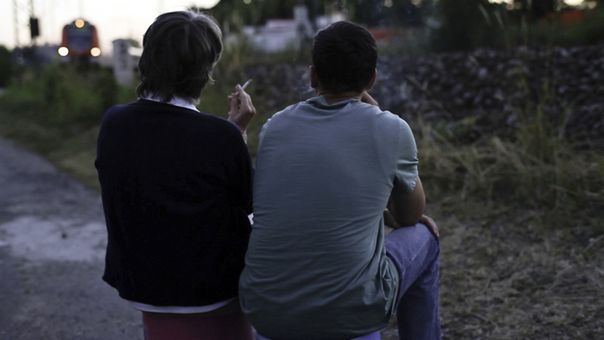Winter Is too Harsh for Flowers
German short film ICE FLOWERS is well executed, but suffers the shortcomings of its own ambition.

ICE FLOWERS
It may not be wise to state this when the border between fiction and reality is more volatile than ever, but too much reality can hurt. The fictional ICE FLOWERS (EISBLUMEN, Germany), shown as a part of a compilation of German short films in Perspektive Deutsches Kino, carries the signature of a documentary filmmaker, apparent in every frame. Director Susan Gordanshekan brings the social consciousness of a documentarian to a number of important issues (immigrant employment, problems of the elderly) all at once. She keeps the camera within touching distance from the characters to underline how familiar we actually are with them, a fitting choice. But Gordanshekan’s approach is so ambitious and insistent that it fails to convey the sense of reality she values so highly.
It may be really hard out there for an immigrant, but it’s not much easier for an old woman either. The film tells the story of Amir, a young Bosnian who works in Germany without legal permission, and Mrs. Osterloh, an old woman with a strange habit of shoplifting that may or may not be explained by the dementia she suffers from. Gordanshekan finds a few touching moments in the lives of these characters but devotes much of the limited running time to more tragic developments. Moments after we meet him, Amir loses his job for no obvious reason, is rejected by his family back home and has trouble paying his rent. Unfortunately for Mrs. Osterloh, her son is not very fond of her and her health is getting worse by the day. All these problems are sadly common for millions, but when condensed into a half-hour film, what is so real is not necessarily so natural.
The narrative structure of ICE FLOWERS relies heavily on repetition, an interesting choice for a short film. This strategy is clearly useful for a film with strong documentary roots, allowing us to observe the characters in their simplest rituals. But Gordanshekan selects such heavy moments from the daily routines of Amir and Mrs. Osterloh that we can’t appreciate the intimacy we share with them. Mrs. Osterloh is shown stealing canned food multiple times, while Amir prays regularly and calls his mother every night. Gordanshekan may be using repetition to convince us of the characters’ struggles, but it doesn’t make us care more for them.
But Gordanshekan’s concern for reality does bring some merit to the film. Renate Grosser and Arnel Taci are solid in their roles, and the technical aspects are exemplary not only for a student film but for any professional production. Unfortunately, that’s not enough to save a film so obsessed with its own importance and so heavy-handed in its delivery.


301 Moved Permanently